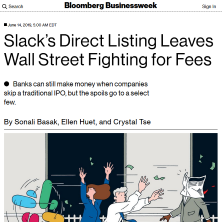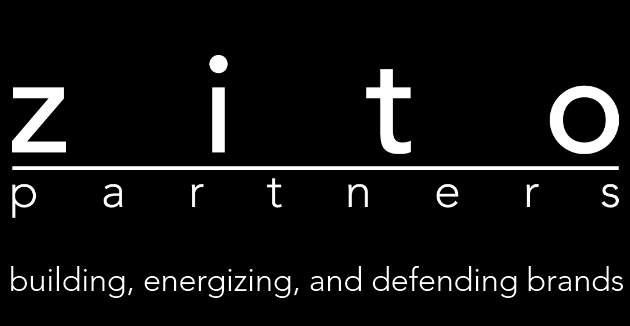 Slack’s Direct Listing Leaves Wall Street Fighting for Fees
Slack’s Direct Listing Leaves Wall Street Fighting for Fees
- Banks can still make money when companies skip a traditional IPO, but the spoils go to a select few.
Wall Street had good reason to be anxious last year when music streaming company Spotify Technology SA did a so-called direct listing, putting shares on the market without opting for a traditional initial public offering. Underwriting and advising on IPOs are among the biggest fee generators for the biggest banks, and it suddenly looked like companies had a new, cheaper alternative. Now another hot tech company, Slack Technologies Inc., is giving a direct listing a try on June 20. Wall Street is about to find out how afraid it should be.
A direct listing differs from an IPO in two key ways. First, unlike in an IPO, the company isn’t raising money with a sale of new shares. Instead, shares already held by founders and other early investors are simply listed for trading—in Slack’s case, on the New York Stock Exchange. It’s a way to make those shares easier to sell. Second, the stakes for the company are not as high. In an IPO, if the stock sells for a disappointingly low price, the company has diluted its shares while taking in less money than it had planned. It hires bankers to avoid that: Banks spend weeks gathering investors in fancy hotels across New York and San Francisco to drum up support. And they set a price for the stock before it goes public.
Read more here: https://www.bloomberg.com/news/articles/2019-06-14/slack-s-direct-listing-leaves-wall-street-fighting-for-fees
